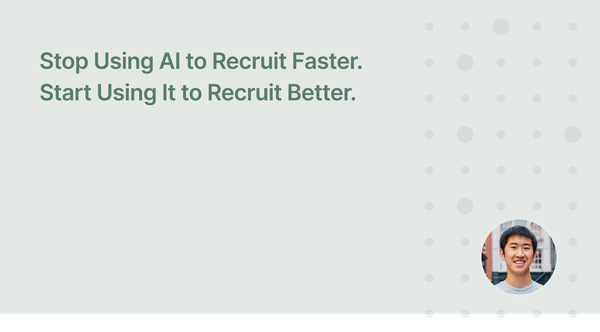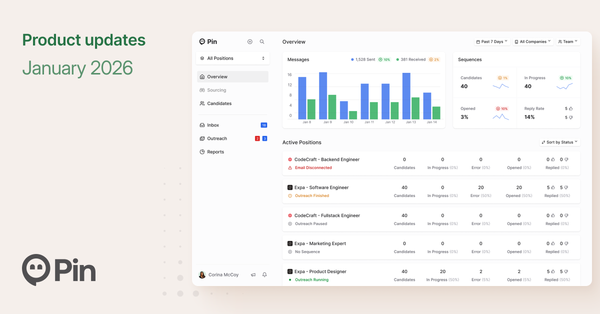Resumes are full of titles and keywords, but they rarely tell the whole story. For recruiters, manually sorting through hundreds of applications is time-consuming and can often result in great candidates being overlooked. AI-powered resume parsing can help speed up this process by identifying key details like skills, experience, and career history. Paired with AI prompts, it transforms cluttered resumes into clear, structured profiles that are easy to scan and compare. In this post, we’ll explore how combining AI resume parsing with AI prompts streamlines hiring, improves candidate matching, and helps recruiters focus on the right talent faster.
What is AI-Powered Resume Parsing?
Recruiters don’t have time to sift through hundreds of resumes manually. Instead of reading each one line by line, AI-powered resume parsing automates this process by extracting key details like job titles, years of experience, skills, and education. AI resume parsing can transform messy, unstructured text into clean, searchable data. Unlike keyword-matching tools, AI resume parsing uses natural language processing (NLP) to understand context, not just scanning for words like 'Python,' but evaluating how and where those skills were applied. This helps assess the depth of a candidate’s experience, distinguishing between those who’ve used a skill in real-world scenarios and those who’ve only mentioned it in passing.
AI prompts go a step further by turning extracted data into clear candidate profiles. They help structure that data into clear, concise candidate profiles, making it easier for recruiters to assess fit quickly. AI can also identify transferable skills, surfacing strong candidates who might have the right experience even if they don't have matching job titles.
Why AI-Powered Resume Parsing Matters
The benefits of AI-powered resume parsing go far beyond just saving time:
✅ Faster candidate evaluation – AI can process hundreds of resumes in seconds.
✅ Improved accuracy – NLP catches skills and experience that might be overlooked due to phrasing differences.
✅ Standardized data – Instead of messy, unstructured resumes, recruiters get clean, organized candidate profiles that are easy to compare.
According to the AI for Recruiting Guide by Ideal, 52% of talent acquisition leaders say the hardest part of recruitment is screening candidates from a large applicant pool—a process AI resume parsing can significantly speed up by instantly structuring and surfacing the most relevant profiles.
How It Works: AI Resume Parsing and AI Prompts
A common challenge in recruiting is the inconsistency of resumes. Some read like novels while others are just vague bullet points—and it’s up to the recruiter to make sense of it all. That’s where structured candidate summaries make a big difference. Instead of digging through cluttered resumes, you get a clear, high-level snapshot of what matters.
The best part? You don’t have to write those summaries yourself. Once resume parsing pulls the key details like work history, skills, education, and certifications, AI can take it from there. With a well-crafted prompt, it generates clean, easy-to-scan summaries that highlight a candidate’s qualifications in seconds.
Here’s an example of what that looks like:
Input: Paste the full resume or upload it from your computer.
AI Prompt:
"Extract and summarize the candidate’s professional background, highlighting key skills, total years of experience in [field of expertise e.g engineering], most recent job title, key accomplishments, and relevant certifications. Format the output as a structured candidate profile summary in clear and easy-to-read bullet points."
Example Output:
Name: John Doe
Total Experience: 8 years (Software Engineering)
Current Role: Senior Software Engineer at XYZ Corp (2021–Present)
Previous Roles:
- Software Engineer, ABC Inc. (2017–2021)
- Junior Developer, TechStart (2015–2017)
Key Skills: Python, Machine Learning, Data Engineering, SQL, AWS, Agile Methodologies
Certifications:
- AWS Certified Solutions Architect
- Google Professional Data Engineer
Notable Achievements:
- Led the migration of legacy systems to AWS, reducing infrastructure costs by 30%
- Built a machine learning model that improved product recommendation accuracy by 25%
- Mentored 3 junior engineers, contributing to team-wide productivity gains
Education: B.S. in Computer Science, University of California, Berkeley (2015)
Location: San Francisco, CA
With structured outputs, recruiters can assess qualifications at a glance without digging through cluttered resumes. AI prompts standardize parsed data into clear, consistent summaries, making it easier to spot the best fit without missing out on strong candidates.
Identifying Skill Gaps with AI Prompts
Even with a stack of resumes in front of you, figuring out who’s qualified for a role isn’t always straightforward. One candidate might check most of the boxes but be missing a key certification. Another might have a strong adjacent background but lack experience with a specific tool. Manually comparing resumes to job descriptions is time-consuming and prone to errors.
AI prompts make this process easier by identifying skill gaps based on the job description. Once a resume is parsed, AI can highlight missing or underrepresented skills and help pinpoint areas for development.
Here’s an example:
Input: Provide both the candidate's resume and job description.
AI Prompt:
“Analyze the candidate's resume against the provided job description. Identify any missing, underrepresented, or insufficiently detailed skills, certifications, or experiences that are important for the role. Present the results in a clear, structured list."
Example Output:
Missing or Underrepresented Skills
- Kubernetes: Not mentioned in resume; required for container orchestration.
- CI/CD Pipelines: Limited reference to deployment tools but lacks specific mention of continuous integration/delivery practices or tooling (e.g., Jenkins, GitLab CI).
- Infrastructure as Code (IaC): No mention of Terraform, Pulumi, or related technologies, though it’s listed as a preferred skill in the JD.
Certifications Required but Not Present
- Google Cloud Professional Cloud Engineer: Listed as "required" in the job description; no cloud certifications found on the resume.
- Docker Certified Associate: Preferred certification not included in resume.
Experience Deficits
- DevOps Experience: Job requires 3+ years of hands-on DevOps experience; candidate has 1 year in a DevOps-adjacent role.
- Production-Level Cloud Deployments: Resume mentions cloud familiarity but lacks examples of production-scale deployments or specific cloud project ownership.
This kind of output helps recruiters quickly see whether a candidate is a strong match or if there are red flags they need to address. It also enables more data-driven hiring decisions, especially when a candidate is a close but not a perfect match. Is the gap something that can be trained? Is it a must-have or a nice-to-have?
By combining AI-powered resume parsing with smart prompts, recruiters can open up more meaningful conversations with candidates. Instead of vague rejections, they can offer specific, actionable feedback such as: “You’ve got a solid foundation, but we’re looking for deeper experience with Kubernetes. Have you had exposure to that in past roles?”
By identifying gaps upfront, AI helps you focus where it matters most and make decisions based on facts, not guesswork.
How AI Resume Parsing and Prompts Improve Hiring
AI resume parsing and prompts streamline recruiting by boosting both speed and quality:
- Saves time – Resume parsing automates resume screening by surfacing key skills, experience, and qualifications in seconds, reducing hours of manual review.
- Improves candidate matching – AI prompts help structure clear summaries and surface skill gaps, making it easier for recruiters to assess if a candidate aligns with the role.
- Make better decisions – Having clear and structured data makes it easier to compare candidates objectively and spot red flags or potential.
The goal isn’t just to move faster—it’s to make smarter decisions with less friction. When resumes are messy or inconsistent, it’s easy to overlook strong candidates or spend too much time evaluating people who may not be the right fit. With the right AI tools, recruiters get clearer signals from the start: what someone’s done, where they shine, and where there might be gaps. When there’s more structure and clarity upfront, it’s easier to make confident hiring decisions.
Still drowning in resumes? Let Pin show you a faster, smarter way to hire. Book a demo and see AI recruiting in action.



